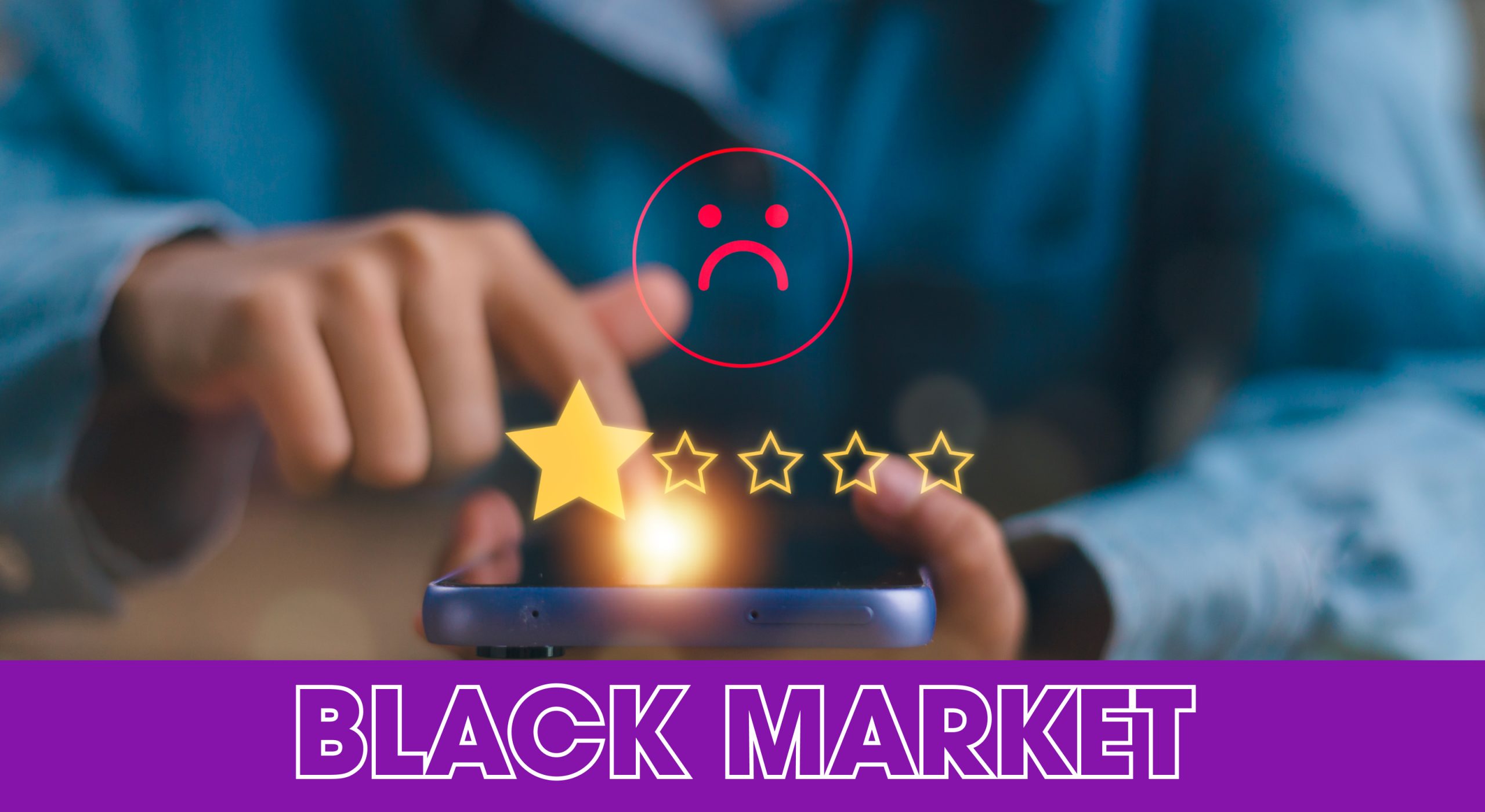Here’s a random Tuesday trivia: the global ecommerce market is set to reach $6.3 trillion in 2024. It would be great if you could snatch a little of that, right?
Good news—you can! And you should start by filling yourself with the industry updates and information we have for you today:
- Q1 consumer trends 📊
- Making it big on Walmart Marketplace 💫
- Social commerce vs. traditional ecommerce 🥊
- ChatGPT alternatives 🤖

BIG IDEA
And just like that, the Q1 chapter of 2024 officially closed.
But before you face Q2, Jungle Scout suggested looking back at the consumer trends of the last quarter to help fine-tune your future strategies.
💡 Here are 4 juicy Q1 insights and the ways to use them to boost your business:
1. Shoppers are cautious with their spending. 52% of consumers are sticking to their usual spending, but only 16% spent more than in previous years.
What to do:
- Use data analytics to adjust prices and offer discounts during price-sensitive periods.
- Offer value-added services like loyalty programs or bundled offers to encourage purchases.
2. TikTok is reshaping online shopping. 35% of customers check out TikTok Shop every week, while 23% have bought a product there. This trend is especially popular among Gen Z shoppers, who use the app to discover and buy products.
What to do:
- Partner with influencers to create content that appeals to TikTok users. 🤝
- Invest in TikTok ads to reach your target audience and increase sales.
3. Augmented reality (AR) drives purchases. More than half of customers who know about Amazon's View in Your Room feature use it for online shopping.It swayed nearly one-third of shoppers to buy a product on Amazon that they would only purchase in person.
What to do:
- Invest in immersive AR shopping experiences to help customers visualize products. 👀
- Use AI-generated review summaries to improve product development.
4. Price still reigns, but differentiation is key. 71% of shoppers go for the lowest-priced products. But ratings, recommendations, and product features also influence many purchases.
What to do:
- Increase sales by optimizing product listings with videos, positive reviews, and catchy but accurate descriptions.
- Offer products with unique features, customization options, clean formulas, and eco-friendly qualities.
🔥 Knowing what’s hot (and what’s not) in ecommerce is key to staying ahead of the curve. With these insights in your back pocket, you're all set to tackle Q2 and make those business dreams a reality.

TOGETHER WITH WALMART MARKETPLACE
Sell Big, Save Big: Launch your business on Walmart Marketplace
Tired of limited reach and high fees?
It's time to tap into millions of eager customers with Walmart Marketplace!
For a limited time, new sellers on Walmart Marketplace get:
- Up to 50% off on referral fees for three months;
- Up to 50% off on Walmart Fulfillment Services*; and
- Instant access to powerful sales tools like advertising and competitive pricing!
Be the next success story on Walmart.com!
How did Miko grow by 115% GMV in just one year?*
By leveraging the 2-day shipping of Walmart Fulfillment Services to increase GMV by 1573%* on items that did not previously have 2-day shipping!
Ready to be the next Miko? Start selling now and get up to 50% off on referral and fulfillment fees.**
Unlike other platforms, Walmart Marketplace offers:
- ZERO monthly or setup fees
- Unmatched transparency—clear, competitive fees with no hidden costs.
- The unique omnichannel advantage that lets you tap into millions of customers across their online and physical stores.
Sign up today and claim your exclusive savings!
*Source: Walmart first-party data, 2021-22

BITES OF THE WEEK
- Best of April: In case you’re looking for a product idea, here are April's bestsellers.
- Policy Update: FYI, sellers of emission tuners must now provide a CARB EO number.
- Card-less: With more payment options, buyers are saying no to credit cards.
- Drone Advancement: Drone deliveries could be the normal shipping mode soon.

SOCIAL PULSE
Social commerce vs. traditional ecommerce
Here’s an interesting insight from Forbes: by 2030, social commerce sites like Instagram and TikTok Shop will outpower traditional ecommerce platforms like Amazon.
Do you agree?
Before you answer, take a look at the two sides of social commerce in today’s industry:
🌟 Social commerce as a rising star
By combining social interaction with a seamless purchasing experience, social commerce sites are winning consumers’ hearts and wallets. Apart from this, they’re also equipped with:
- A powerful sense of community delivered through engaging experiences and authentic connections;
- Influencers’ influence, which makes social platforms more relatable, especially for younger consumers; and
- Personalization and targeting features craved by many shoppers nowadays.
🍼 Social commerce as an ecommerce rookie
Despite the great potential of social shopping sites, they have equally great limitations that could make them look like underdogs:
- Platform dependence. Remember the Meta outage last month? Problems like that affect social commerce’s sustainability because it depends on the platform’s stability.
- Limited product offers. Products with complicated specs aren’t suitable for social commerce. For instance, explaining the technical features of heavy equipment via a TikTok livestream is time-consuming and prone to error.
- Data privacy issues. Despite strict privacy rules, consumer info may still be exposed and exploited by bad actors due to the large amount of data shared on social sites.
Social commerce or traditional ecommerce?
Why not both? 💡
Needless to say, traditional ecommerce is here to stay. And while social commerce still has some obstacles to overcome, it’s destined to be a formidable ecommerce force. You don’t want to miss your chance to hitchhike on its success.

TECH MARKETING
3 ChatGPT alternatives for generating high-converting content
ChatGPT’s contribution to ecommerce has been very significant, to say the least. And OpenAI continues to push AI abilities, just like the recent voice cloning feature it decided to delay.
📝 But with its extensive application, brands might find it hard to differentiate themselves from numerous others using ChatGPT to create content. According to Search Engine Journal, it might be worth knowing and trying these 3 alternatives to craft your unique story:
- Google Gemini (formerly Bard). This chatbot integrates with Google Search to provide updated information. You can even edit prompts and export answers to GDocs or Gmail.
- Price: It’s free but has an advanced paid version at $19.99/month.
- Microsoft Copilot (formerly Bing Chat). This AI tool is compatible with Microsoft products, especially Edge. It can read and summarize text from PDFs and web pages. Non-pro subscribers can also generate images. Unfortunately, its accuracy with user queries is not as high as ChatGPT’s.
- Price: It’s also free, but its Pro version is priced at $20/month.
- Jasper.ai. Designed for marketing cases, this chatbot allows you to create templates to improve AND simplify your sales talk. It uses Copyscape to detect plagiarism and has a Brand voice feature.
- Price: You can avail of a free 7-day trial. Afterward, you’ll have to pay $39/month.
Other notable options include Claude (stronger accuracy), Perplexity (provides follow-up questions), Elicit (great for automating data extraction), Learnt.ai (for educational content creation), and Otter (meeting and transcription services).
🔎 Despite the convenience these tools bring, remember that they’re not perfect (yet). You still need to fact-check the outputs generated by your AI assistants to avoid misleading customers.








